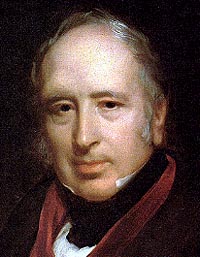George Cayley (nonfiction)
Sir George Cayley, 6th Baronet (27 December 1773 – 15 December 1857) was a prolific English engineer and is one of the most important people in the history of aeronautics. Many consider him to be the first true scientific aerial investigator and the first person to understand the underlying principles and forces of flight.
In 1799 he set forth the concept of the modern aeroplane as a fixed-wing flying machine with separate systems for lift, propulsion, and control.
He was a pioneer of aeronautical engineering and is sometimes referred to as "the father of aviation."
He discovered and identified the four forces which act on a heavier-than-air flying vehicle: weight, lift, drag and thrust. Modern aeroplane design is based on those discoveries and on the importance of cambered wings, also identified by Cayley. He constructed the first flying model aeroplane and also diagrammed the elements of vertical flight. He designed the first glider reliably reported to carry a human aloft. He correctly predicted that sustained flight would not occur until a lightweight engine was developed to provide adequate thrust and lift.
The Wright brothers acknowledged his importance to the development of aviation.
In the News
Cayley simulates early plans for airship using Gnomon algorithm functions.
Fiction cross-reference
Nonfiction cross-reference
External links:
- George Cayley @ Wikipedia

